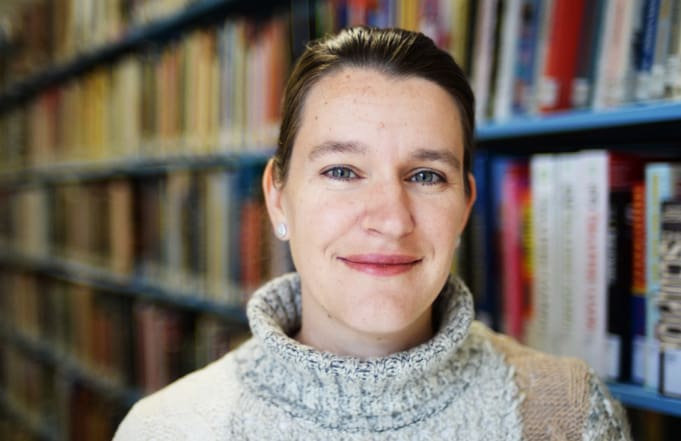November 29, 2017
McFarland Books’ new publication, “Arrow and Superhero Television: Essays on Themes and Characters of the Series,” features an essay from University of Montana Western Associate English Professor Ashley Carlson.

“Simians, Cyborgs, and Smoak: Felicity’s Gendered Roles” is an analysis of the character Felicity Smoak, a computer genius who regularly assists the titular hero in his super-powered escapades.
The title of Carlson’s essay is a reference to “Simians, Cyborgs, and Women: The Reinvention of Nature,” published by feminist writer Donna Haraway in 1990.
On Haraway, Carlson said, “Haraway conceptualizes the cyborg (and ‘cyborg imagery’) as a means of breaking down binaries, including gender binaries. Felicity, in some ways, supports that.”
In her essay, Carlson points out that Felicity is presented as a normal person unlike the eccentric female tech-wizards on other popular shows.
“What’s nice about her [Felicity’s] representation is that tech women on other shows are always shown as outsiders. She’s not blatantly constructed as being weird. I’m all for having weird characters on TV, but it can build a narrative that girls working in technology are unusual. Her character has a chance to change some people’s perceptions on women and technology.”
Carlson praises and criticizes Felicity’s depiction in equal measure.
Her prowess with technology may be forward-thinking, but in other ways Felicity’s character promotes antiquated gender roles.
Carlson writes, “One of the most notable ways in which Felicity adheres to traditional, or even archaic, gender roles is through her regular presence at Oliver’s home base, and relatively rare appearances outside of it. The Arrow Cave becomes a kind of domestic space for the team, and in it, Felicity quickly assumes typically feminine, domestic roles. Indeed, Felicity’s role in Oliver’s life strongly resembles that of the idealized Victorian wife.”
On her fascination with television, Carlson said, “Pieces of pop culture not only inform our culture, but they also come out of it.”
She believes the medium holds great power to affect change in society, both positive and negative:
“Television as a medium is so pervasive. Americans watch somewhere around 35 hours of TV a week. That means it really informs our worldview. It becomes a part of our cultural narrative. Forensic science was dominated by men. Then, in the last 20-30 years, female medical examiners ballooned in cop shows. Today, most people going into forensic technology and medical examining are women.”
Carlson plans to continue writing about television with her next project which will focus on the CW Network as a whole.
To read further pop culture studies from Carlson, seek out her book, “Genius on Television: Essays on Small Screen Depictions of Big Minds,” where she suggests that the medium often portrays “the smartest people as nearly handicapped” and explores the reasons behind this common portrayal.